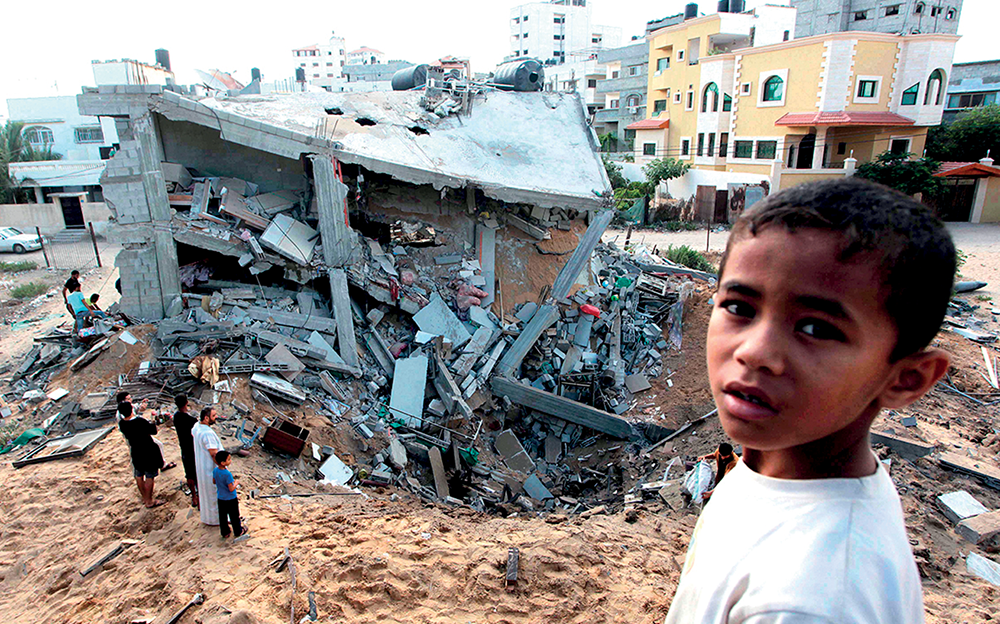Cinema Politica’s latest screening focuses on the public relations of the Gaza-Israel conflict
There are two sides to every story and conflict. The Occupation of the American Mind explores the other side of the Gaza-Israel conflict—the side that pro-Israel North America doesn’t get to see. This visually-packed documentary, screened at Concordia’s Cinema Politica on Oct. 3, examines the pro-Israel public relations mandate within the United States.
Directed by Loretta Alper and Jeremy Earp, The Occupation of the American Mind analyzes the backlash against Israel’s invasion of Gaza from the majority of the world, and the pro-Israel political stance within American politics.
As if there were a public relations agreement between the U.S and Israel, the film claims the American media is only showing one side of the story. It opens with a jarring quote from former Israeli president Benjamin Netanyahu that perfectly sums up the purpose of the film: “It doesn’t matter if justice is on your side. You have to depict your position as just.”
The film begins with an explanation of the various treaties and wars that have led to the current Gaza-Israel conflict. Although heavy with political jargon, this summary is beneficial for anyone going into the film with very little knowledge of the conflict’s origins.
The film focuses on the unilateral conflict between Israel and Gaza, and, specifically, how American media is both manipulating the American public and being manipulated by the American and Israeli governments. With interviews from political activists like Yousef Munayyer and Noam Chomsky, the filmmakers sought to give a voice to activists who feel the media is demonizing their point of view. Munayyer references an interview in which he was verbally accosted by the news anchor for not giving the answer they were looking for.
The sights and sounds of the film may be graphic or triggering to some viewers. The film opens with a heartbreaking shot of an apartment building being destroyed by a bomb. The sounds of the ambulance sirens mix with the desperate cries of the injured and mourning. The filmmakers did not shy away from showing desolated homes and gut-wrenching images of those most affected by the conflict—the innocent civilians.
Monday’s screening was followed by a Q&A session with Sut Jhally, a professor of communication at the University of Massachusetts. He is the founder and executive director of the Media Education Fund, which was involved in the creation of the film. He also directed the 2004 documentary Peace, Propaganda & the Promised Land: U.S. Media and the Israeli/Palestinian Conflict.
Cinema Politica will be screening a second film this week titled The Last Omelette: The making of “The Land of the Enlightened” on Friday, Oct. 7. For their full line-up, check out their website www.cinemapolitica.org.




